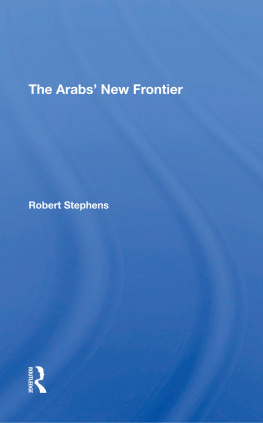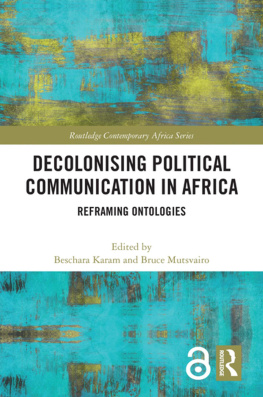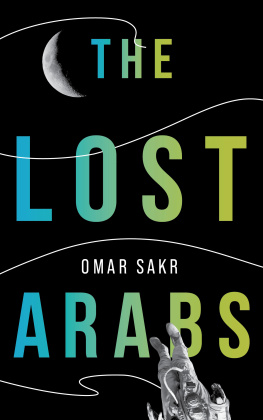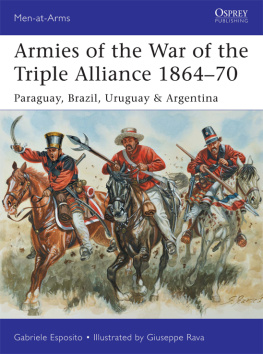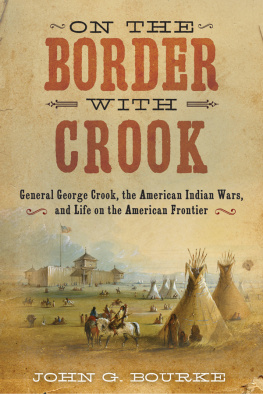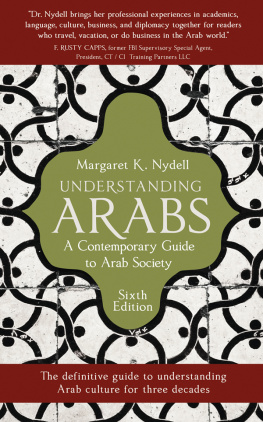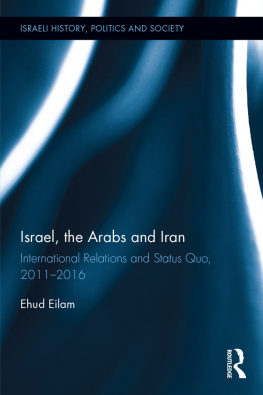Copyright 2021 Vanderbilt University Press
All rights reserved
First printing 2021
Maps from OpenStreetMap.org are licensed under the OpenDataCommons.org Open Database License (ODbL).
Library of Congress Cataloging-in-Publication Data
Names: Karam, John Tofik, author.
Title: Manifold destiny : Arabs at an American crossroads of exceptional rule/John Tofik Karam.
Description: Nashville : Vanderbilt University Press, [2020] | Includes bibliographical references and index.
Identifiers: LCCN 2020034084 (print) | LCCN 2020034085 (ebook) | ISBN 9780826501332 (hardcover) | ISBN 9780826501325 (paperback) | ISBN 9780826501349 (epub) | ISBN 9780826501356 (pdf)
Subjects: LCSH: ArabsSouth AmericaEthnic identity. | ArabsSouth AmericaSocial conditions. | ArabsUnited StatesPublic opinion. | South AmericaPolitics and government. | South AmericaRelationsUnited States. | United StatesRelationsSouth America.
Classification: LCC F2239.A7 K37 2020 (print) | LCC F2239.A7 (ebook) | DDC 327.8073dc23
LC record available at https://lccn.loc.gov/2020034084
LC ebook record available at https://lccn.loc.gov/2020034085
Para Josephine e Nur
El camino es el destino
O caminho o destino
The Road is Destiny
Los hijos de los das, Eduardo Galeano (2012)
Acknowledgments
Ones destination may or may not be destiny. In Spanish and Portuguese, destino can mean destination and destiny. In Arabic, al-wijha is destination whereas al-qadr evokes a pre-determined destiny. Likewise, in English, destination is the end of a journey while destiny suggests ones eventual fate. Notwithstanding the title, this book is neither a literal destination nor an actual destiny but rather a history of the present that I hope will soon take another, more progressive, direction that would make the story recounted in these pages the past of a future with greater equity, justice, and belonging. The research that resulted in this book began at a more optimistic time, in 2007 specifically. I completed most of the research by 2011, when it seemed that this hemisphere was headed for somewhere other than the conjunction where we now find ourselves. Over these years, I met and married my wife, and we welcomed into the world our daughter whose vibrant light gives me energy each and every day. I know not where we are bound for, but I am content that we are bound together.
I want to express my deepest gratitude to the entire community in Foz do Iguau and Ciudad del Este for making this research possible. Since most have been mentioned in the press, I decided to keep real names, except in cases of some private individuals for whom I use pseudonyms. I will be forever indebted to Mohamad Barakat and Fouad Fakih, who welcomed me at the border and introduced me to many of the protagonists in these pages. I also extend thanks to Mohamad Abu Ali, Ado Luiz Almeida, Amer A. S., Baina, Mihail Meskin Bazas, Rogrio Bonato, Nasser Chamseddine, Nabil Chamseddine, Adnan El Sayed, Arialba Freire, Marcelle Ghies, Khaled Ghotme, Hector Guerin, Mhamad Mahmoud Ismail, Ricardo Jimenez, Sheik Taleb Jomha, Sheik Mohamad Khalil, Luiz Francisco Macchioratto, the late Juvncio Mazzarollo, Yusuf Nassar, Antnio Vanderli Moreira, Aluizio Palmar, Abdul Rahal, Ali Said Rahal, Hamad Rahal, Nadia Rahal, Fawaz Rahal, Ali Hussein Safadi, Faisal Saleh, Juan Carlos Salinas, Isam Saour, Antnio Savaris, Said Taigen, Fawez Tarabain, Wagner, Fatima Yahya, and Yahya. I want to express my sincere appreciation to countless others who I read about in the local border press. A special thanks to Alfredo Jalaf in Puerto Iguaz. In addition, I want to thank interlocutors in Asuncion and Brasilia, including Talal AlDamasi, Coco Arce, Augusto Ocampos Caballero, Coronel Walter Felix Cardoso Junior, Bader Rachid Lichi, the late Dr. Luis Alfonso Resck Haidder, Daniel Nasta, Carlos Nuez, Carlos Torres, Victor Torres, Reinaldo Penner, Armando Rivarola, and Jos Vidal.
The research that resulted in this work was funded by the National Endowment for the Humanities, the Fulbright Scholar Program, DePaul University, and the University of Illinois, Urbana-Champaign. At DePaul University, I want to especially thank the Department of Latin American and Latino Studies, which provided institutional and moral support at the very start of this project. At the University of Illinois, Urbana-Champaign, I express my gratitude to the Department of Spanish and Portuguese, the Humanities Research Institute, the Lemann Center for Brazilian Studies, and the Office of the Vice Chancellor for Research, which ensured the support that saw this project to the end. I am deeply grateful for the camaraderie and support of numerous colleagues and friends from both universities, especially Mary Arends-Kuenning, Raquel Castro Goebel, Camilla Fojas, Glen Goodman, Maria Gillombardo, Wal Hassan, Marc Hertzman, Stephanie Hilger, Amor Kohli, Kalyani Menon, Chernoh Sesay Jr., and Lourdes Torres. I wish to extend heartfelt thanks to Luiz Loureiro and the entire Fulbright Commission in Brazil. At Vanderbilt University Press, I sincerely thank acquisitions editor Zachary Gresham and managing production editor Joell Smith-Borne for taking on this project and believing in this book. I want to extend my particular debt to the anonymous reviewers whose interventions improved the manuscript. I am especially indebted to Jerry Dvila and Jeff Lesser who read prior parts of this manuscript and who made critiques and gave reassurances without which I would have never persevered. Any shortcomings in the coming pages are of my own doing.
Other debts I owe to friends and colleagues in Argentina, Brazil, Canada, Lebanon, Paraguay, the US, and elsewhere. I thank Christine Folch, Lorenzo Macagno, Silvia Montenegro, Paulo Pinto, Fernando Rabossi, and Caroline Schuster for their camaraderie and support at the border. I thank the staff at the Biblioteca Pblica Elfrida Engel Nunes Rios, the Cmara Municipal de Foz do Iguau, and the newspaper A Gazeta do Iguau in Foz do Iguau, as well as the staff at the Centro de Documentacin y Estudios in Ciudad del Este. I thank Aluzio Palmar for permission to use numerous photographs of the Arab community from the newspaper Nosso Tempo. In Braslia, I thank Antonio Carlos Lessa and the Instituto de Relaes Internacionais at the Universidade de Brasilia for welcoming me in 2019 for the final leg of research. I want to also extend thanks to Rogrio de Souza Farias in Itamaraty, Brazils Ministry of Foreign Relations, for welcoming me into the archive. In Asuncin, I am grateful to Rose Palau at the Centro de Documentacin y Archivo para la Defensa de los Derechos Humanos (CDyA, better known as the Archivo del Terror), Zayda Caballero Rodrguez at the Biblioteca Nacional del Paraguay, and Adelina Pusineri and Raquel Zalazar at the Museo Andrs Barbero. I express thanks to David Sheinin for showing me the ropes in Buenos Aires and to the Biblioteca Nacional de Argentina. I also want to extend my gratitude to Roberto Khatlab and the Center for Latin American Studies and Cultures at USEK in Lebanon.


